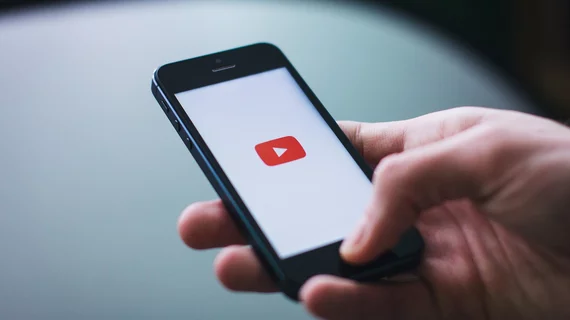YouTube to bring authoritative health content with new partnerships
YouTube has created a new health partnerships team to shore up healthcare information on its video platform, which has more than 2 billion signed-in monthly users. The effort will help support and disseminate credible health information, with YouTube partnering with the numerous health organizations, such as the American Public Health Association, Cleveland Clinic, the Forum at the Harvard School of Public Health, Mayo Clinic and more.
“The future health of the world’s population is dependent on better understanding of the various scientific efforts and findings,” Robert Blendon, Richard L. Menschel Professor of Public Health and Professor of Health Policy and Political Analysis, Emeritus, Harvard T.H. Chan School of Public Health, said in a statement. “This is an effort to try to disseminate the best of scientific knowledge to as broad a population as has ever been done before.”
The announcement comes as several social media platforms have begun to crack down on misinformation about the COVID-19 pandemic. Platforms like Facebook and YouTube have become breeding grounds for misinformation about health, enabling the global anti-vax movement to proliferate. According to YouTube, the initiative is “the latest step” to bring content from “evidence-based sources front and center on the platform.” YouTube will focus on promoting credible information, guided practices and emotional support.
The new initiatives at YouTube will be led by Dr. Garth Graham, director and global head of healthcare and public health partnerships at YouTube. He previously served in two U.S. administrations as U.S. Deputy Assistant Secretary of Health and as Assistant Dean for Health Policy and Chief of Health Services Research at the University of Florida School of Medicine.
YouTube hopes to bring health content out of its current text-based existence, making information more accessible and engaging so patients seek it out.
“When I became a physician, I saw my purpose as helping my patients live their healthiest and best lives. I know first-hand that it means enabling people to take ownership of their health and how it’s managed,” Graham said in a statement. “Providing individualized care means meeting people where they are, making complex clinical topics easy to understand and fostering a sense of belonging to patients no matter where they are from or what they look like. Video is an equalizer, which is why so many people already turn to YouTube for health support.”
YouTube will continue to roll out partnerships throughout 2021, the company stated, with a group of leading public health experts coming together in March for a virtual health event on health education. During the COVID-19 pandemic, YouTube will create content with partners with helpful information.

